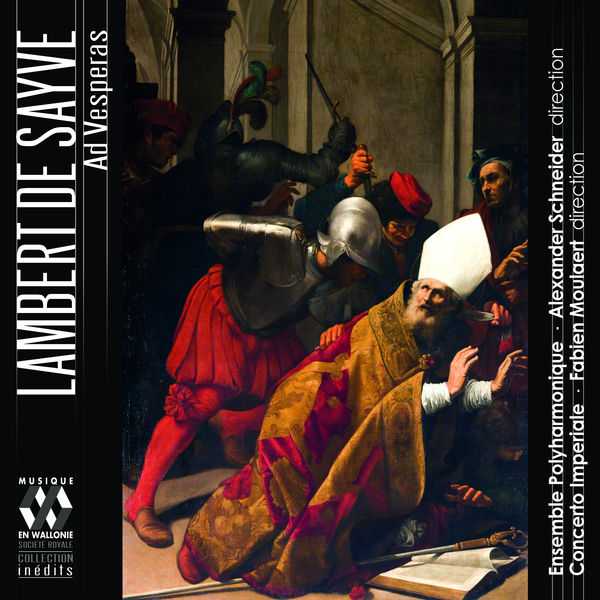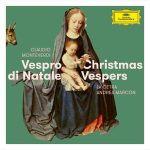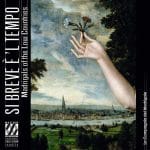

Composer: Andrea Gabrieli, Léonard de Hodémont, Peter Philips, Lambert de Sayve, Jan Pieterszoon Sweelinck
Performer: Ensemble Polyharmonique, Concerto Imperiale
Conductor: Fabien Moulaert, Alexander Schneider
Format: FLAC (tracks)
Label: Musique en Wallonie
Catalogue: MEW2201
Release: 2022
Size: 1.12 GB
Recovery: +3%
Scan: yes
01. Gabrieli: Toccata
02. anon.: Deus in adjutorium, Domine ad adjuvandum
03. Hayne: Ave Maria
04. Rosmarin: Dixit Dominus à 8
05. anon.: In odorem
06. Sayve: Lætatus sum in his à 8
07. anon.: Cum essem parvula
08. Coolen: O gloriosa mater
09. Philips: Fantasia
10. Remouchamps: Salve matrona nobilissima Anna
11. anon.: Speciosa facta es
12. Sayve: Nisi Dominus à 8
13. anon.: Beata mater
14. Coolen: O dulcissima mater à 8
15. anon.: Dignare me
16. Sayve: Lauda, Ierusalem, Dominum à 8
17. Sayve: O admirabile commercium
18. Sweelinck: Écho
19. anon.: Beatam me
20. Sayve: Magnificat à 8
21. anon.: Concede nos famulos
22. anon.: Benedicamus domino
23. Hodémont: Salve Regina à 8
24. Coolen: Ecce panis angelorum à 8
25. Coolen: Tantum ergo
In the 17th century the city of Liège, capital of an enormous diocese and of a principality within the Empire, was described as a “priests’ paradise” on account of its imposing cathedral, its seven collegiate churches, about thirty parish churches, and its numerous abbeys and monasteries.
This recording does more than justice to two manuscript which provides rare evidence of the polyphonic repertoire in use by the Liège religious orders in the first half of the 17th century: Grand Livre de chœur de Saint-Lambert and Livre d’orgue des frères croisiers. The fifty-odd 4- to 8-part motets assembled in the Grand Livre de chœur are by the hand of Liège composers from the first half of the 17th century who, with the exception of Gilles Hayne, were all active at the cathedral.
These motets illustrate the permanence of the rite in honour of the patron saint of the diocese, Bishop Lambert, and other acts of devotions in favour in Liège at the time. Following the traditional format of the evening office, the vespers presented here alternate psalms and antiphons and end with a Magnificat with a particularly rich tonal texture. Sayve’s Magnificat for double chorus, preserved in the National Library at Ljubljana, here receives its first recording.
Drawing on extant sources of composers who all maintained a link with Liège, the Polyharmonique and Concerto Imperiale ensembles, under the direction of Alexander Schneider et Fabien Moulaert, here offers a programme remarkable for its great stylistic and musical coherence.



